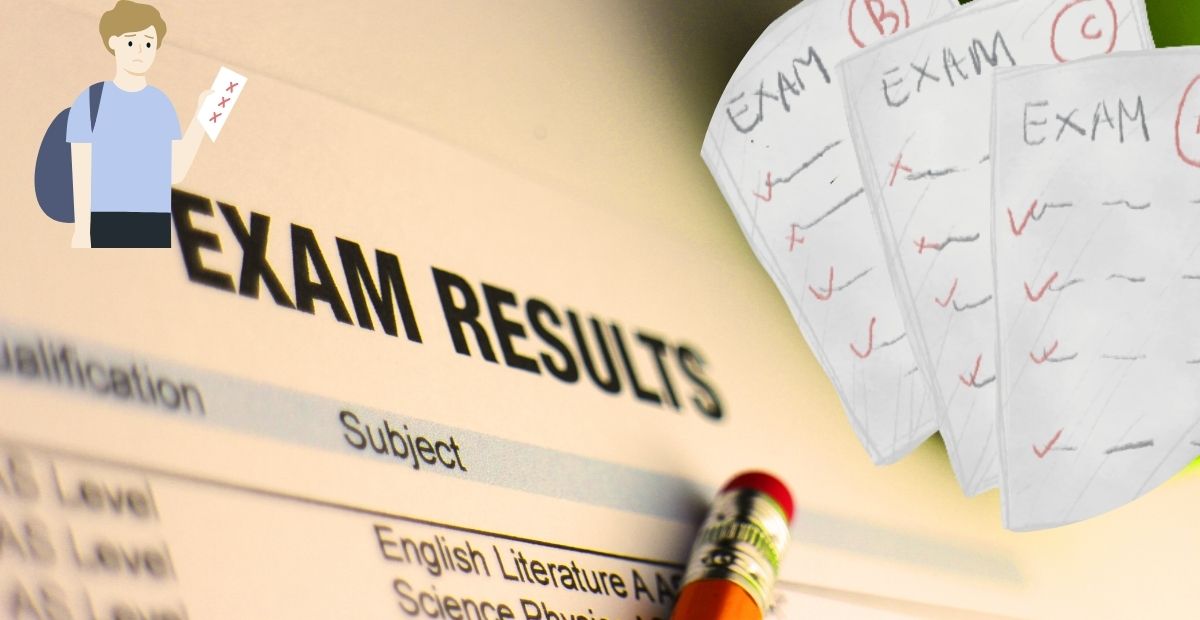Poor performance in matriculation exams can have far-reaching consequences, affecting not just students but also casting a shadow on teachers and the overall educational system. In South Africa, matriculation results hold significant importance as they serve as key indicators of academic progress and achievement. Receiving low marks can have a significant impact on students’ future prospects, causing them to worry about their chances of getting into higher education institutions.
The implications have far-reaching effects, not only on individuals but also on national educational standards and opportunities. Poor matriculation results can restrict students’ options and make it difficult for them to pursue higher education. Securing a place at a university has become increasingly challenging, as the number of available options continues to dwindle.
But what happens if someone receives low matriculation results? Is there any hope left? Are there any other options or routes available? Let’s delve into the effects of poor academic performance, the potential outcomes, and the different choices available to students who have received low matriculation results, in order to explore their options for furthering their education.
Can I Further My Education If I Get Low Matriculation Results?
In today’s fast-paced society, the capacity to acquire new knowledge, let go of outdated information, and adapt to new ways of thinking is absolutely essential. Many students experience significant stress trying to excel in exams, and it can be discouraging when their efforts don’t yield the desired results. Nevertheless, achieving lower matriculation results does not signify the conclusion of one’s journey. You may be curious about the possibility of furthering your education, given these results. Fortunately, there are numerous options for you to consider.
Consider retaking the exams as a viable option to enhance your grades. A lot of students choose to take this path, signing up for matric upgrades or rewrites in order to improve their results. This presents a chance to enhance studying methods, fill in knowledge gaps, and strive for improved scores.
- Consider Exploring Other Institutions: An alternative option to explore is looking into different educational institutions, like Technical and Vocational Education and Training (TVET) colleges. These institutions provide a wide range of courses that can equip individuals with valuable skills and knowledge, laying a solid groundwork for future academic and career development.
- Acquire Work Experience: If pursuing additional education right away isn’t feasible, obtaining work experience in a relevant field can be a valuable alternative. This method, referred to as Recognition of Prior Learning (RPL), enables individuals to develop practical skills and potentially use their work experience as a credential when applying to universities in the future.
Although achieving low matriculation results may seem discouraging, they should not be seen as a determining factor for your future. Countless accomplished individuals have encountered comparable obstacles and discovered alternative routes to achieving success. It’s crucial to maintain motivation, explore various possibilities, and keep in mind that there are numerous paths to accomplishing your educational and career aspirations.
How Do You Deal with Low Matriculation Scores?
Dealing with low scores in South Africa’s matriculation exams calls for a proactive and strategic approach. First, it’s important to recognize and address your emotions and frustrations, but try not to let them overwhelm you. Keep in mind that obstacles are a normal aspect of life and do not determine your true capabilities. Take some time to consider the areas where you may struggle in each subject. Then, prioritize these areas based on your level of proficiency and how much they will impact your exam performance.
If you ever find yourself unsure or in need of clarification, feel free to reach out to your teachers, tutors, or classmates for assistance. They provide valuable support and guidance. Make sure to allocate some time to carefully review your exam and thoroughly analyze the questions you may have answered incorrectly. Take note of any consistent patterns in your errors. Was there a specific topic or type of question that gave you difficulty? Recognizing these areas can assist you in directing your attention towards areas that require enhancement.
Stay optimistic while you strive to improve yourself. Have faith in your capacity to acquire knowledge and develop. With a strong resolve and access to the necessary tools, one can overcome disappointing matriculation results and continue their educational journey.
Which Marks Do Universities In South Africa Look At?
Many students often worry about their ability to continue their education if they achieve low matriculation results. When applying to universities, the Admission Points Score (APS) is a key factor that most institutions take into account. It is important to have a clear understanding of your APS score, as it plays a significant role in determining your eligibility for various courses and programs.
Universities may also take into account your performance in specific high school subjects, particularly for competitive courses or scholarship opportunities. Nevertheless, the APS score continues to be the primary and most important factor in the admission process. Understanding your APS and familiarizing yourself with the requirements for your desired course are crucial for successfully navigating the application process. Keep in mind that although low matriculation results may pose a challenge, having a good grasp of your APS score and using it wisely can assist you in discovering appropriate educational prospects.
What is the Lowest Acceptable Grade For Matriculation Exams?
Matriculation exams play a vital role in evaluating a student’s performance, as they assign grades ranging from A to F to reflect their accomplishments in each subject. Universities in South Africa frequently rely on these grades to assess eligibility for higher education. Typically, universities expect students to achieve a minimum grade of E, which is equivalent to at least 40% in a subject, for admission. However, it’s worth noting that the lowest grade a student can receive is a G.
If you’re thinking about pursuing higher education, it’s crucial to thoroughly investigate the specific requirements of the universities you’re interested in. Different institutions have varying acceptance criteria for grades, with some accepting as low as 40% (E) and others setting the threshold at 50% (D) or even higher. It is important to thoroughly investigate and understand the criteria of each South African university before submitting your application, as the standards may vary.
To sum up, although lower matriculation results may restrict your choices, they do not necessarily eliminate your opportunities for pursuing further education. By equipping yourself with the necessary knowledge and making adequate preparations, you can discover a suitable academic path that aligns with your goals.
How To Get Into A South African University With Low Grades
If you’re worried about your low matriculation results but still have your heart set on attending a university in South Africa, rest assured that there are options for you. Success lies in adopting a thoughtful and dedicated mindset in your endeavors. Here are a few steps that can help improve your chances of getting accepted:
- Explore Your Choices: Begin your search by exploring universities that offer programs that match your interests. Certain institutions offer more lenient entry requirements, which can be advantageous if your grades are not as high as you desire. It is advisable to directly reach out to the admissions offices to inquire about their policies regarding applicants with low matriculation results. They have the ability to offer valuable insights and potentially propose alternative pathways.
- Explore Bridging or Foundation Courses: These programs aim to support students in enhancing their academic skills and getting ready for university-level studies. Enrolling in a bridging or foundation course can enhance your academic profile and showcase your dedication and preparedness for higher education. This method is a great way to fill in any knowledge gaps and improve your chances of getting accepted.
- If you believe that your matriculation results do not accurately represent your abilities, you may want to consider appealing the decision or requesting an interview with the admissions committee. Here is an opportunity for you to personally share your academic journey, emphasizing any unique circumstances you may have faced, and demonstrating your passion and determination. Meeting in person can often have a substantial impact on the decision-making process.
- Consider including a motivational letter alongside your application to further showcase your enthusiasm and drive. This letter will outline the reasons why you believe you should be considered for admission to the university, despite your academic performance. Emphasize your passion for the subject, any pertinent experiences, and your dedication to your studies. A carefully composed letter can offer background information about your academic history and showcase your capacity for personal development.
By following these steps and approaching the situation with determination and optimism, you can discover a pathway to university, even if your matriculation results are not as high as you hoped. Keep in mind that being persistent and open to trying out various options is crucial in order to reach your educational objectives.






